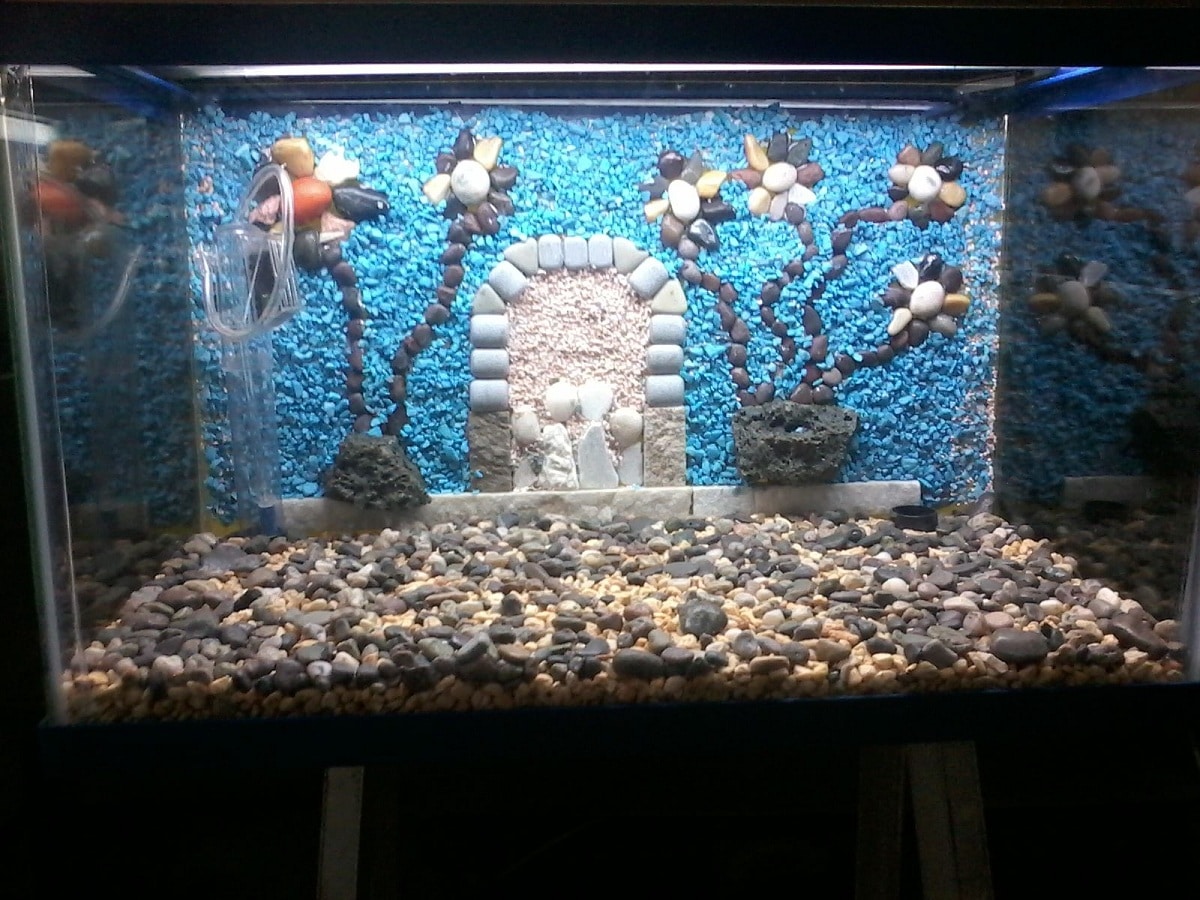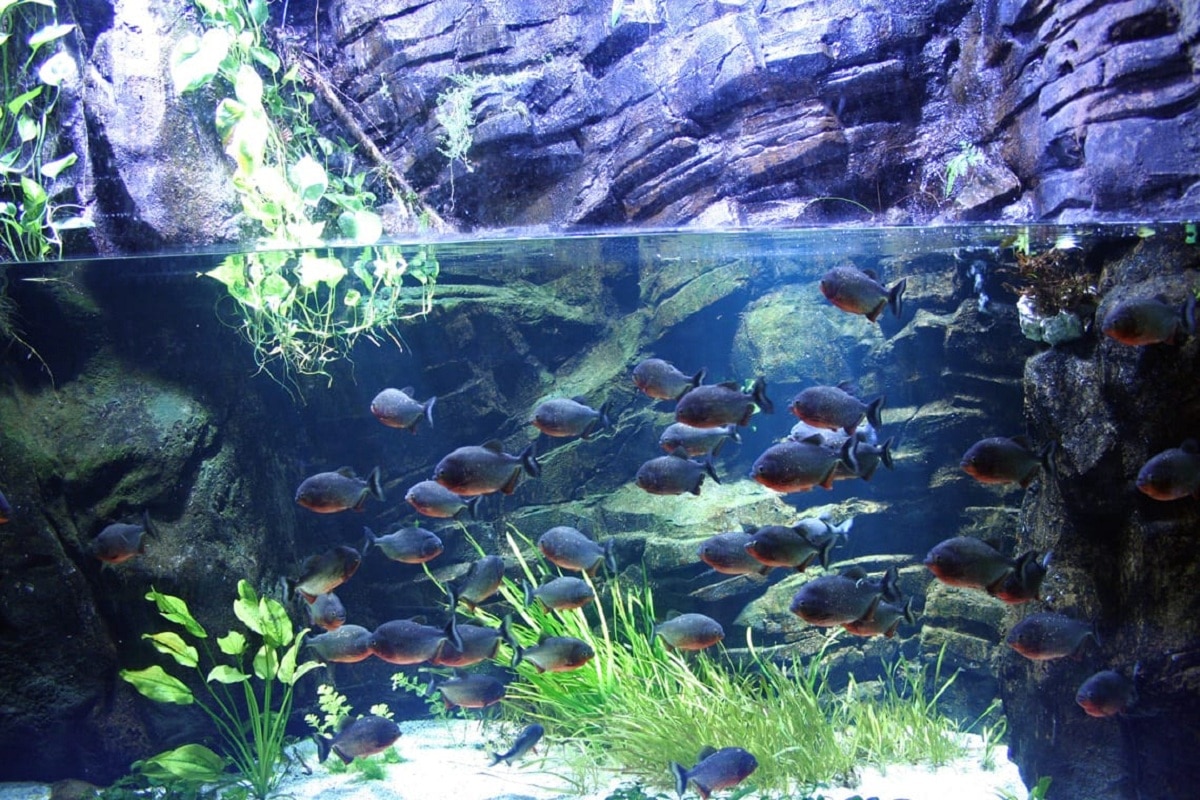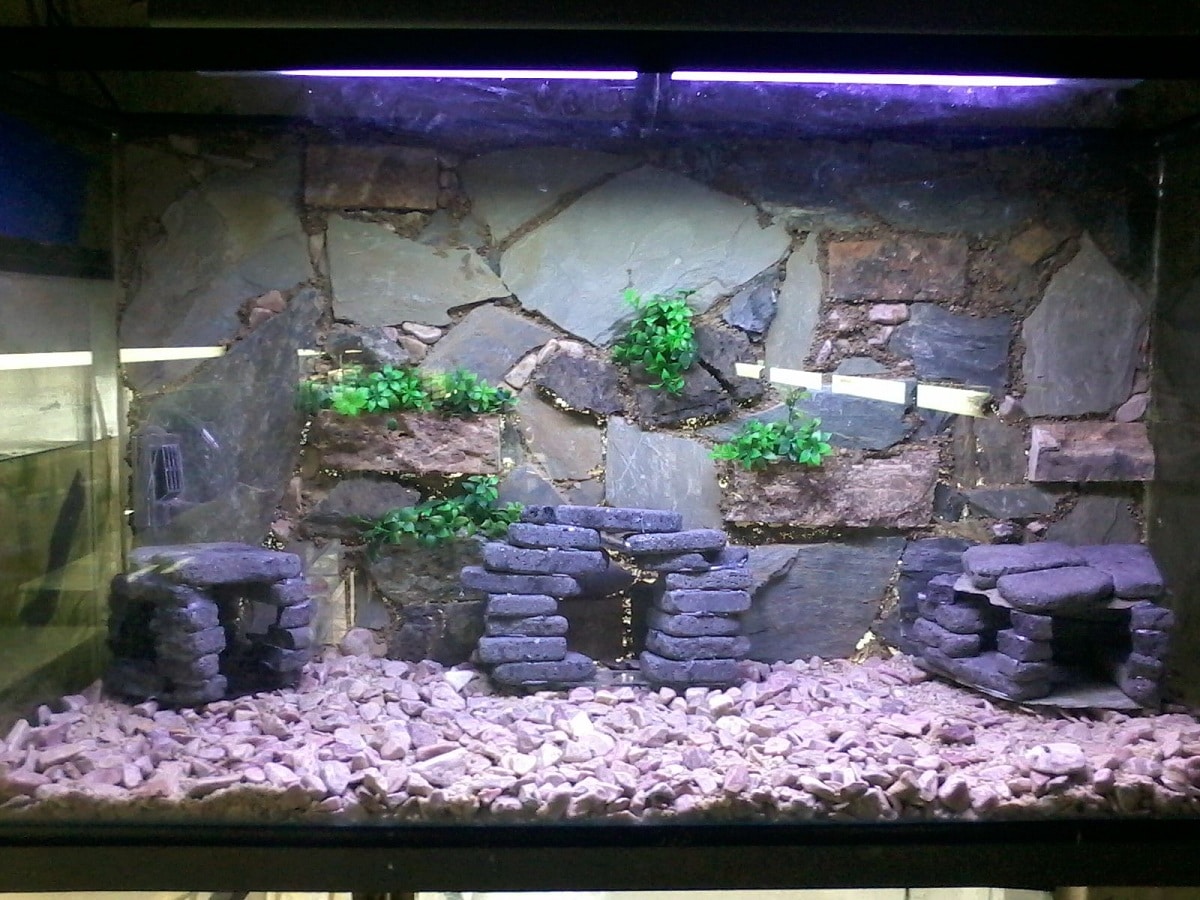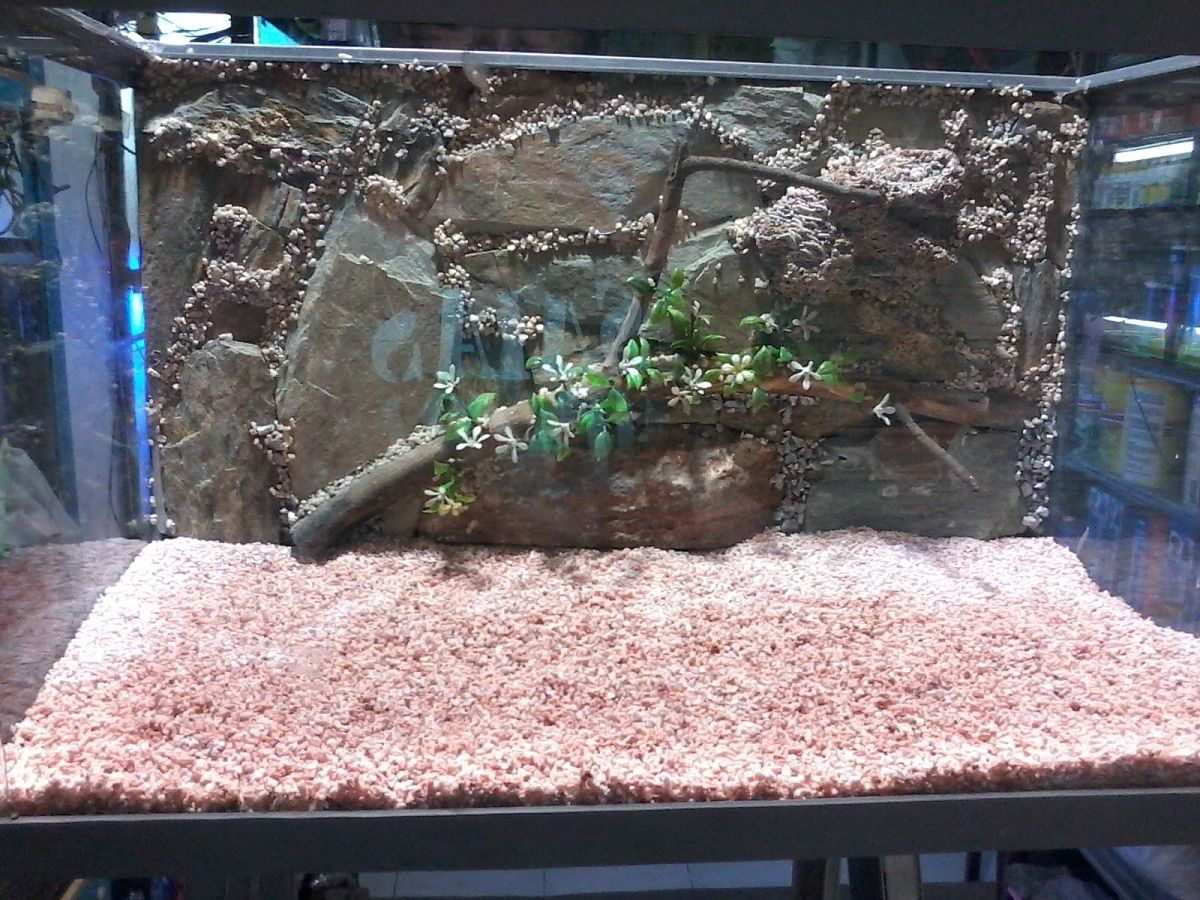
When we buy our aquarium and we begin to think about the decoration, not only the plants and the accessories are the only important thing. The stones are a quite striking decorative element and useful for fish. There are numerous stones for aquariums that adapt to different tank volumes, species de peces and they have different designs.
In this article we are going to show you which are the best stones for aquariums and what is their function.
Stones used for aquariums
Stones from freshwater aquariums or marine aquariums have a basic function as a shelter for fish. But once we understand that our fish need a place to protect themselves and feel safe, it is obvious that we do not like the end result to be the most primitive, but rather to be more striking. That is why there are very decorative aquarium rocks. However, if we do not want to spend money, we can use any type of stone, as long as we consider certain limitations.
In theory, any stone can be used in an aquarium, provided that:
- As long as the stone is not limestone it can be used. We will explain this later.
- It must be taken into account that the stone does not harm our fish when it rubs against the edges.
- It must be a stone that does not dirty the aquarium and that is quite clean to the naked eye.

The reality is that we have to use all the materials that we introduce into the aquarium very carefully, because depending on their composition, the parameters of the water can change, creating an imbalance that is very difficult to control. Any stone you introduce into the aquarium must meet at least the following three requirements: it is not a source of calcium, it does not have sharp edges that could harm the aquarium residents, and it does not contain harmful substances.
Limestone It is not suitable as a stone for freshwater aquariums because they change the composition of the water. They are sedimentary rocks composed mainly of calcium carbonate, which dissolve in the presence of water, increasing the pH and causing the water to harden. Unless our fish needs water with a high pH, higher than 7,5, the use of this type of rock in aquariums is completely discouraged. Limestone is usually porous and light in color, ranging from white and gray to pink.
If you've ever seen limestone it is easier to know what kind of stone we are explaining. Still, if you doubt whether a stone contains limestone, you can find out by pouring strong water over it. If it generates bubbles, it is or has traces of limestone. It can also be because it is dirty or has organic residue. You may like this stone very much, so it is best to clean and retest before completely discarding.
How to incorporate stones for aquariums

You can use stones from the fields or beach stones in the aquarium, as long as you know that they will not change the quality of the water. First you have to clean them well. One of the problems with aquariums and fish is that they are very sensitive to any chemical product. Disinfectants that seem harmless to us, or detergents that we often use at home, can be deadly poisons in the aquarium. The ideal approach is to thoroughly clean the stones that we want to put in the aquarium first.. It is best to use soapy water and a brush.
Once we are clear that there is no dirt or dirt left, we will continue boiling the stone for about 20 minutes to make sure we have eliminated any product or substance that is harmful to the aquarium.
If you are looking for more decorative stones and that your aquarium looks great, you can also opt for artificial stones. Next we will see what are the artificial stones for aquariums.
Artificial stones for aquariums
Resin, polyester or ceramic stones are great solutions for aquarium decoration, since they do not change the composition of the water and do not pose any danger to fish or plants, but in return, we get very decorative elements.
Some imitate the stones completely, others are more direct, they create shelters for the fish, which can be natural or fake, but it is also difficult to obtain by looking for the stones anywhere.
Rocks for freshwater aquariums

New types of rocks appear every day that are sold with more or less precise names and are not always harmless for our aquariums. In addition to the visual effects that we have been looking for in the aquarium, when choosing the elements that compose it (usually rocks and logs), we must also consider how the water parameters will be affected by implementing these solids.
As a general rule, different types of rocks are not usually mixed in the same aquarium, though aquarium landscaping is all about creativity. Therefore, we can mix as we want. The advice that is most often given is that it is best to focus on only one type of rock, because in almost all cases, simplicity is a value.
There are some essential aspects to take into account when decorating:
- Keep the amount and type of materials simple.
- Overall harmony is essential for a pleasant visual impact. This is achieved by trying to balance different elements such as rocks, plants, gravel, and sand.
- You should also consider the importance of blanks.
- Last but not least, the contrast in color and texture of the montage of the intermediate waterscape.
We must distinguish between two types of rocks in freshwater aquariums:
- Natural rocks: They are rocks specially selected for freshwater aquariums and have been cleaned and processed.
- Handmade pieces with natural rocks: They are natural rocks handmade by artisans to obtain unique and attractive works.
In addition, in these two categories, we can subdivide them according to how the type of rock affects the chemical composition of the water. In this sense, we can distinguish:
- Those substances that affect the chemistry of the water.
- Completely inert and it will not affect the aquarium parameters.
I hope that with this information you can learn more about aquarium stones and their characteristics.